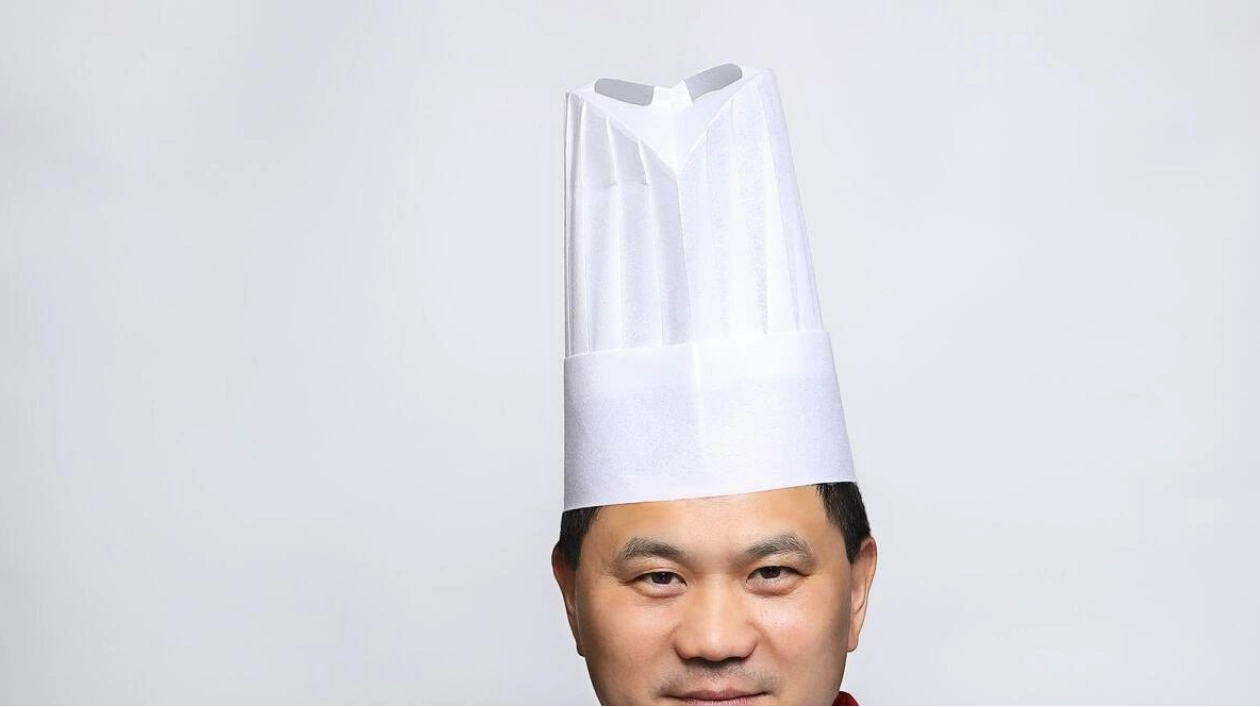In Sichuan cuisine, a harmonious interplay of seven essential flavors—sweet, sour, numbing, spicy, bitter, fragrant/aromatic, and salty—creates a culinary symphony that chefs take pride in. Chef Benson Peng, Head Chef of Sichuanese Cuisine at Shangri-La Hotel Chengdu, is currently in the UAE as part of the Taste of Shangri-La food festival, which runs until October 30. Renowned for his bold flavors and innovative techniques, Peng shares with City Times, “The UAE has been a source of fresh inspiration, especially in food presentation.”
“Their innovative plating techniques have inspired new ideas in my cooking, particularly with Chinese and Sichuan cuisine. It’s thrilling to blend traditional flavors with contemporary presentation styles, crafting dishes that offer both visual and sensory delights,” he adds.
Here’s a glimpse into what cooking means for Peng beyond just a skill, his inspirations, and his kitchen pet peeves:
What sparked your interest in cooking? My passion for cooking stems from an ancient Chinese saying, “Food is the essence of life.” This saying encapsulates how deeply food has shaped my life, and this connection has always felt natural. Cooking is not just a skill—it's an extension of my identity.
I’m excited to bring the rich flavors of Sichuan cuisine to life in Dubai and Abu Dhabi through the ‘Taste of Shangri-La’ festival.
What do you love most about cooking? What I cherish most about cooking, especially with Chinese and Sichuan cuisine, is the balance between tradition and innovation. It’s deeply satisfying to preserve culinary heritage while pushing boundaries to create something new. It’s about honoring the past without being confined by it, and I constantly seek ways to innovate while preserving the essence of the cuisine.
You employ innovative techniques to cook traditional recipes. Can you share some insights into that? Why not stick to the traditional route? I believe innovation can enhance traditional recipes rather than replace them. By using modern techniques, I aim to elevate classic dishes and align them with the evolving tastes of today’s diners while preserving the essence of the cuisine.
Tradition is paramount, and I fully embrace it, but I also think it's crucial to adapt and grow. For instance, during my time in the UAE for the ‘Taste of Shangri-La’ festival, I prepared a refined version of a traditional boiled fish dish, making it more sophisticated and accessible.
Sichuan cuisine has seven essential flavors—what’s your secret to balancing them in all dishes? The secret to balancing the seven essential flavors in Sichuan cuisine lies in understanding and applying the “24 flavors” of Sichuan cooking. These 24 flavor profiles guide me in layering and harmonizing the tastes in each dish. I strive to achieve a perfect balance by combining and adjusting flavors like spice, sourness, sweetness, and umami.
Tell us about your signature dish—Simmered Mandarin Fish with Vegetables and Assorted Mushrooms in Spicy Chili Oil—and how you developed it. My signature dish, Simmered Mandarin Fish with Vegetables and Assorted Mushrooms in Spicy Chili Oil, is an elevated version of the traditional boiled fish fillets. I aimed to enhance both the texture and flavor of the dish while maintaining its essence. Instead of using a spiny fish, I chose mandarin fish, which is softer and has fewer bones, making it more enjoyable to eat. For the spice element, I replaced the traditional chilli powder with dried pepper slices and a mix of dried red and green peppercorns, giving the dish a more layered and aromatic heat.
You also teach cooking classes—what’s the most common mistake you see amateurs make? In my classes, I often observe that many participants follow recipes without understanding the rationale behind each method. Knowing why you're using a certain technique—whether for flavor, texture, or timing—makes a significant difference.
Once you grasp the purpose, you can adapt and improve your skills, rather than just following instructions blindly.
Any advice for amateur chefs? My advice is straightforward: keep learning and practicing. The more you experiment and refine your techniques, the better you'll become. Don’t be afraid to make mistakes—they’re part of the learning process. Also, try to understand the “why” behind every method or ingredient choice. The more you immerse yourself in cooking, the more natural and enjoyable it becomes.
What’s your pet peeve? I’m generally a positive and happy person, so I don't let minor annoyances affect me. If something bothers me, I prefer to address it directly or find a quick solution.
Source link: https://www.khaleejtimes.com






